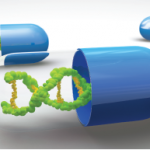From the guideline—Recommendation: For patients with PAN in remission who are receiving non-glucocorticoid immunosuppressive therapy, we conditionally recommend discontinuation of non-glucocorticoid immunosuppressive agents after 18 months over continued (indefinite) treatment.
Q: Can you talk about the literature that was used by the panel? For example, a study from 1995 and one from 1979 helped guide recommendations for plasma exchange and discontinuing immunosuppressive medications after 18 months. Where do expert panel recommendations and those data fit into that particular conditional recommendation? And how confident are you in making recommendations based on old data?
Dr. Springer: I think it’s important to remember the landscape of PAN has changed over time. For example, the association between hepatitis B and PAN was discovered around 1970. The population we now diagnose with microscopic polyangiitis (MPA) used to be thought of as having a subtype of PAN. In the 1980s, ANCA antibodies were discovered, and the 1990s is when the Chapel Hill Consensus Conference officially separated out MPA from PAN. Our pool of primary PAN patients has actually gone down over time; it’s become much rarer, which makes it more difficult to do studies. We did have to go back in the literature to find large trials.
When you’re evaluating the literature, it’s important to remember that, if the study was done prior to 1970, some of these patients may have had hepatitis B; in studies done after that, you have to make sure they’ve carefully separated out those patients. Also, in studies done before the 1990s, you have to consider the fact that some of those patients had MPA. In fact, some of the early French studies, which are some of the biggest studies we have, include a significant number of patients with MPA.
As far as the recommendation regarding length of therapy, we don’t have great long-term studies in terms of how long to continue maintenance therapy, unlike in ANCA-associated vasculitis. Part of that recommendation is based on the fact that there is a theme in the literature that a significant number of patients will have a monophasic course.
I think it is reasonable, at some point, to stop maintenance therapy, but I think 18 months is somewhat arbitrary. A lot of the studies stop after 18 to 24 months just because of feasibility. I don’t think I’d get too caught up on 18 months as a cutoff, but I think if you have a patient who has demonstrated they have maintained long-term remission without relapses, then it’s worth trying to stop therapy and just monitor closely at that point.




